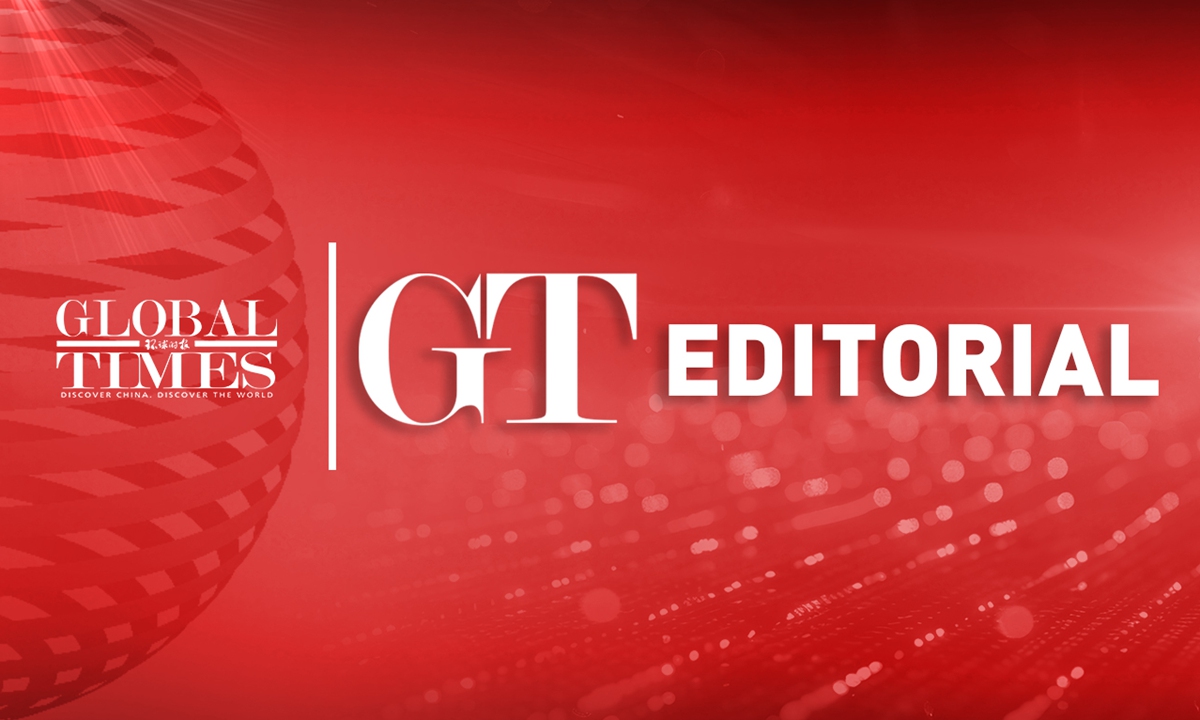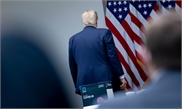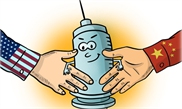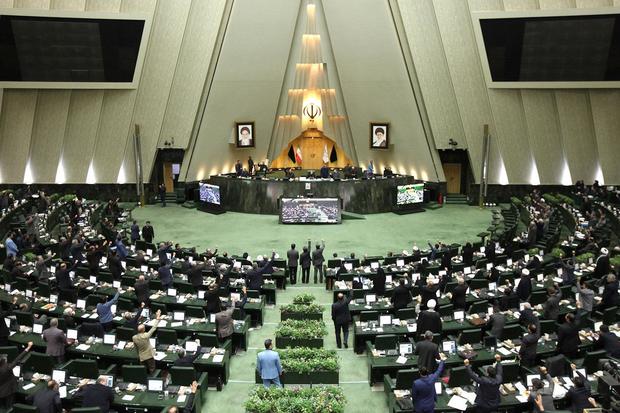
WASHINGTON/DUBAI/JERUSALEM: President Donald Trump called on Tuesday for Iran's unconditional surrender and warned US patience was wearing thin, but said there was no intention to kill Iran's leader "for now", as the Israel-Iran air war raged for a fifth day.
Explosions were reported in Tehran and the city of Isfahan in central Iran, while Israel said Iran fired more missiles late on Tuesday and early Wednesday. Air raid sirens sounded in southern and central Israel, and explosions were heard over Tel Aviv. The Israeli military said it had conducted strikes on 12 missile launch sites and storage facilities in Tehran.
Trump's comments, delivered via social media, suggested a more aggressive stance toward Iran as he weighs whether to deepen US involvement.
"We know exactly where the so-called 'Supreme Leader' is hiding," he wrote on Truth Social. "We are not going to take him out (kill!), at least not for now... Our patience is wearing thin."
Three minutes later, he posted, "UNCONDITIONAL SURRENDER!"
Israeli Defence Minister Israel Katz said Iran's Supreme Leader Ayatollah Ali Khamenei could face the same fate as Iraqi President Saddam Hussein, who was toppled in a US-led invasion and hanged in 2006 after a trial.
"I warn the Iranian dictator against continuing to commit war crimes and fire missiles at Israeli citizens," Katz told top Israeli military officials.
Trump's sometimes contradictory and cryptic messaging about the conflict between close US ally Israel and longtime foe Iran has deepened the uncertainty surrounding the crisis. His public comments have ranged from military threats to diplomatic overtures — not uncommon for a president known for an often erratic approach to foreign policy.
Trump said on Monday that he might send US Middle East Envoy Steve Witkoff or Vice President JD Vance to meet Iranian officials. The president said his early departure from the Group of Seven nations summit in Canada had "nothing to do" with working on a ceasefire deal, and that something "much bigger" was expected.
Britain's leader Keir Starmer said there was no indication the US was about to enter the conflict.
Trump met for 90 minutes with his National Security Council on Tuesday afternoon to discuss the conflict, a White House official said. Details were not immediately available.
The US is deploying more fighter aircraft to the Middle East and extending the deployment of other warplanes, three US officials told Reuters. The move follows other deployments that US Defence Secretary Pete Hegseth described as defensive in nature. The US has so far only taken defensive actions in the current conflict with Iran, including helping to shoot down missiles fired toward Israel.

Regional Influence Weakens
Khamenei's main military and security advisers have been killed by Israeli strikes, hollowing out his inner circle and raising the risk of strategic errors, according to five people familiar with his decision-making process.
The Israeli military said on Tuesday it had killed Iran's wartime chief of staff Ali Shadmani, four days after he replaced another top commander killed in the strikes.
With Iranian leaders suffering their most dangerous security breach since the 1979 Islamic Revolution, the country's cybersecurity command banned officials from using communications devices and mobile phones, Fars news agency reported.
Israel launched a "massive cyber war" against Iran's digital infrastructure, Iranian media reported.
Ever since Iran-backed Hamas attacked Israel on Oct 7, 2023, and triggered the Gaza war, Khamenei's regional influence has waned as Israel has pounded Iran's proxies — from Hamas in Gaza to Hizbollah in Lebanon, the Houthis in Yemen and militias in Iraq. Iran's close ally, Syria's autocratic president Bashar al-Assad, has been ousted.
Israel launched its air war — its largest ever on Iran — on Friday after saying it had concluded the Islamic Republic was on the verge of developing a nuclear weapon.
Iran denies seeking nuclear weapons and has pointed to its right to nuclear technology for peaceful purposes, including enrichment, as a party to the international Non-Proliferation Treaty.
Israel, which is not a party to the NPT, is the only country in the Middle East believed to have nuclear weapons. Israel does not deny or confirm that.
Israeli Prime Minister Benjamin Netanyahu has stressed that he will not back down until Iran's nuclear development is disabled, while Trump says the Israeli assault could end if Iran agrees to strict curbs on enrichment.
Before Israel's attack began, the 35-nation board of governors of the UN nuclear watchdog, the International Atomic Energy Agency, declared Iran in breach of its non-proliferation obligations for the first time in almost 20 years.
The IAEA said on Tuesday an Israeli strike directly hit the underground enrichment halls at the Natanz facility.
The Iranian news website Eghtesadonline, which covers economic news, reported on Tuesday that Iran arrested a foreigner for filming "sensitive" areas at the Bushehr nuclear power plant for Israel's spy agency Mossad.

Iranian security forces also arrested a "terrorist team" linked to Israel with explosives in a town southwest of the capital Tehran, Iranian state media reported.
Oil Markets on Alert
Israel says it now has control of Iranian airspace and intends to escalate the campaign in coming days.
But Israel will struggle to deal a knock-out blow to deeply buried nuclear sites like Fordow, which is dug beneath a mountain, without the US joining the attack. Israel's Katz said Fordow was an issue that will be addressed.
Iran has so far fired nearly 400 ballistic missiles and hundreds of drones towards Israel, with about 35 missiles penetrating Israel's defensive shield, Israeli officials say.
Iran's Revolutionary Guards said they hit Israel's Military Intelligence Directorate and the foreign intelligence service Mossad's operational centre early on Tuesday. There was no Israeli confirmation.
Iranian officials have reported 224 deaths, mostly civilians, while Israel said 24 civilians had been killed. Residents of both countries have been evacuated or fled.
Global oil markets are on high alert following strikes on sites including the world's biggest gas field, South Pars, shared by Iran and Qatar.
Related posts:
 The US should immediately stop fueling the war machine in the Middle East: Global Times editorial
The US should immediately stop fueling the war machine in the Middle East: Global Times editorial
As a country with special influence over Israel, the US should particularly adopt an objective and impartial stance, take due responsibility, and play a positive and constructive role in de-escalating tensions and preventing the conflict from further expanding.
















